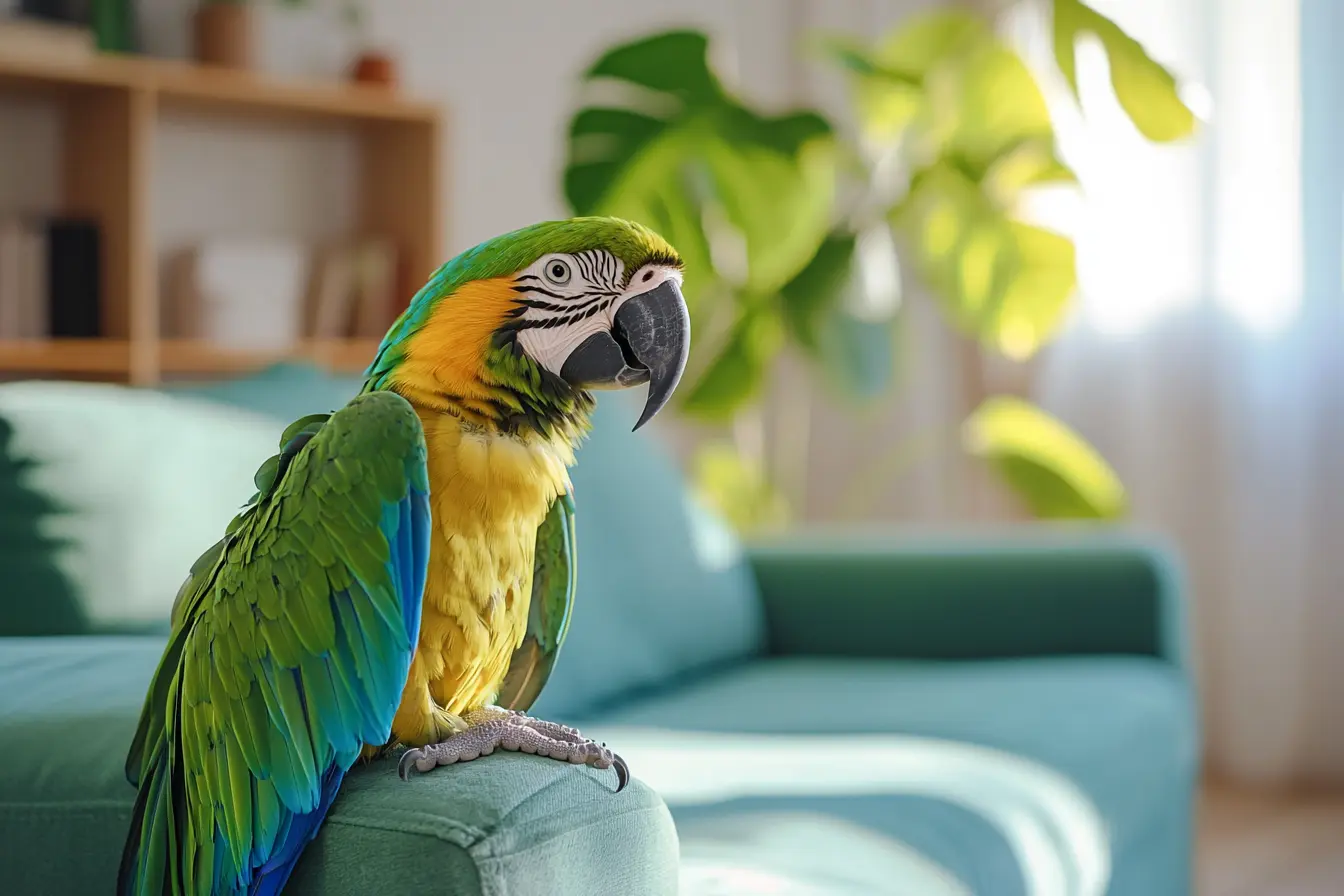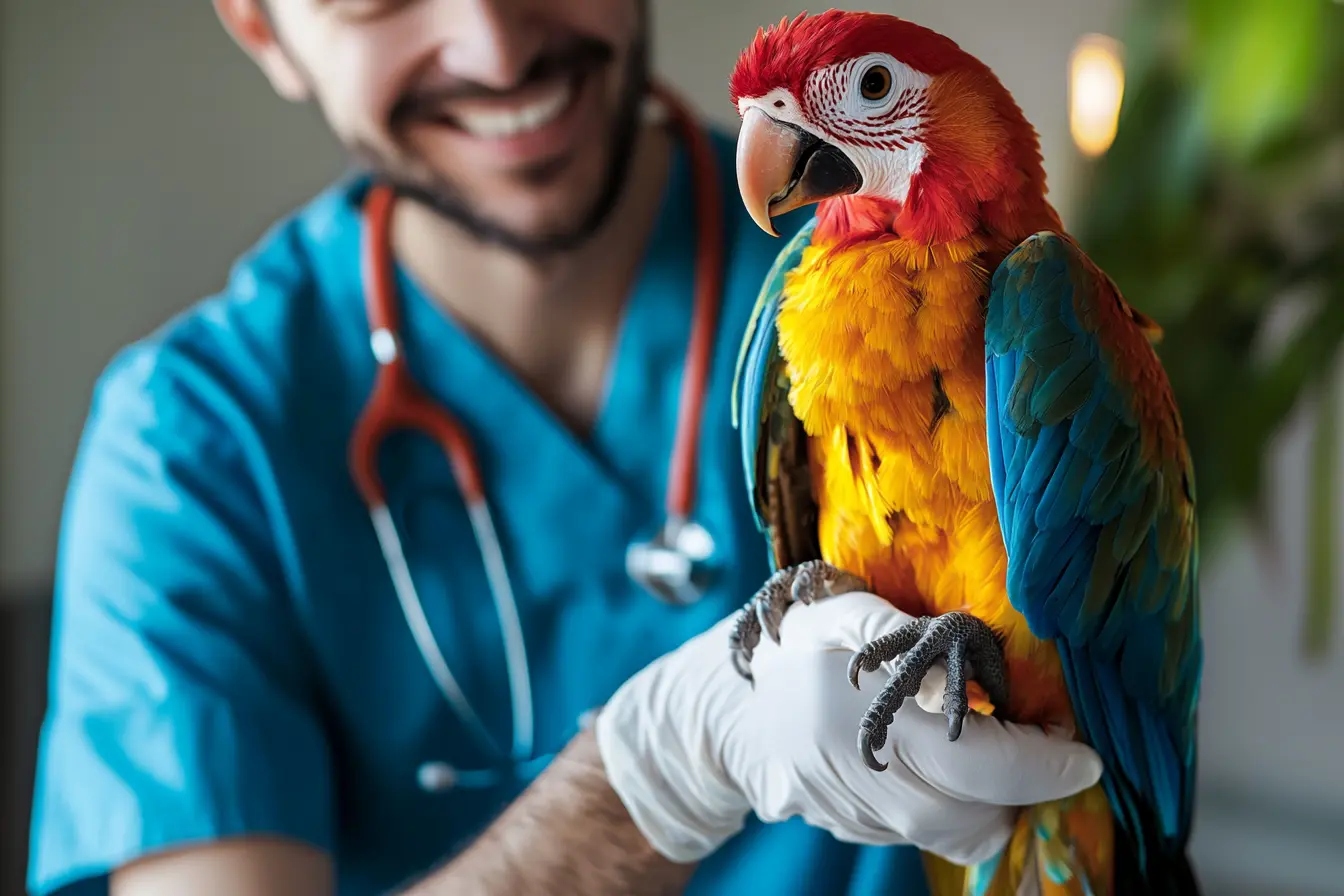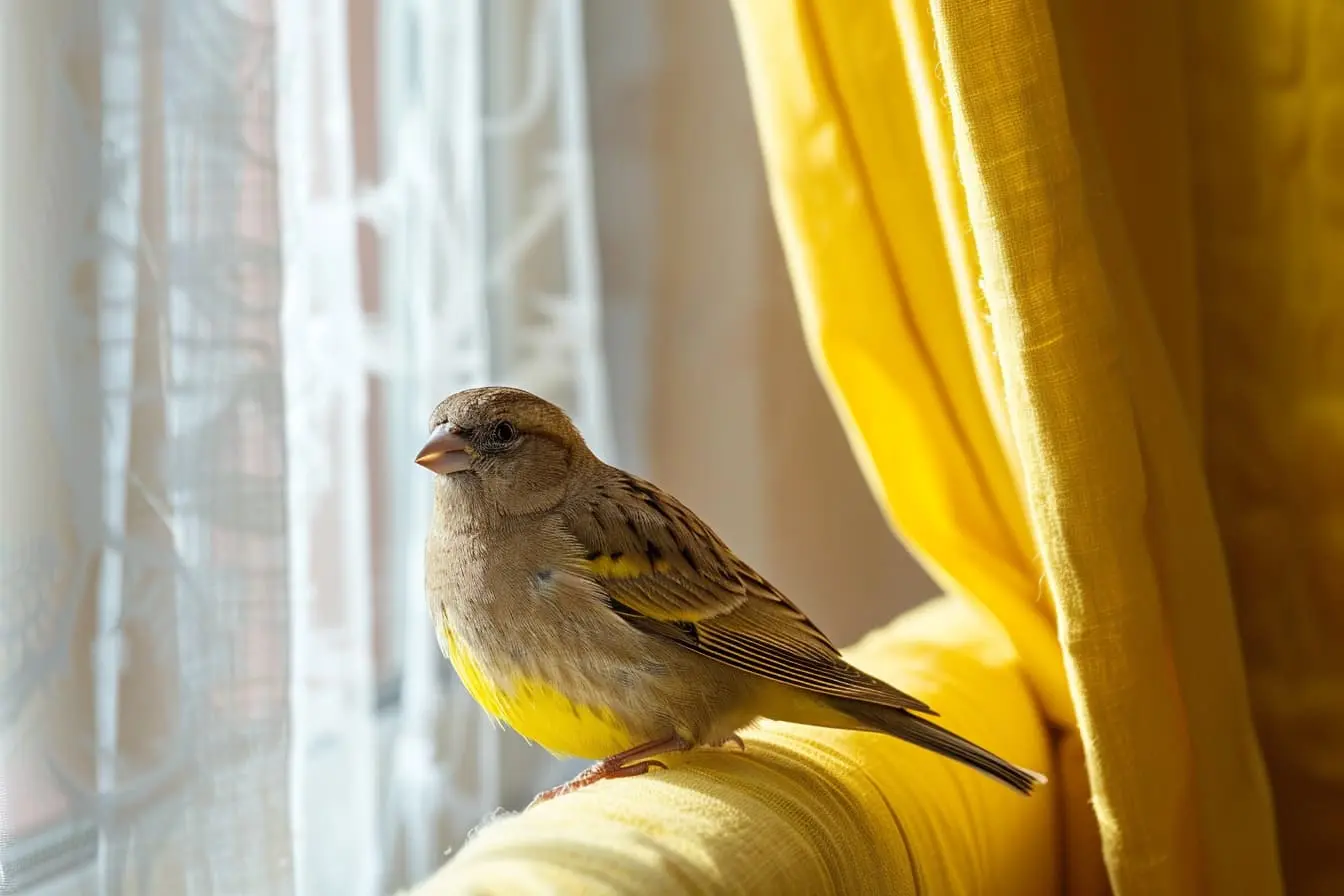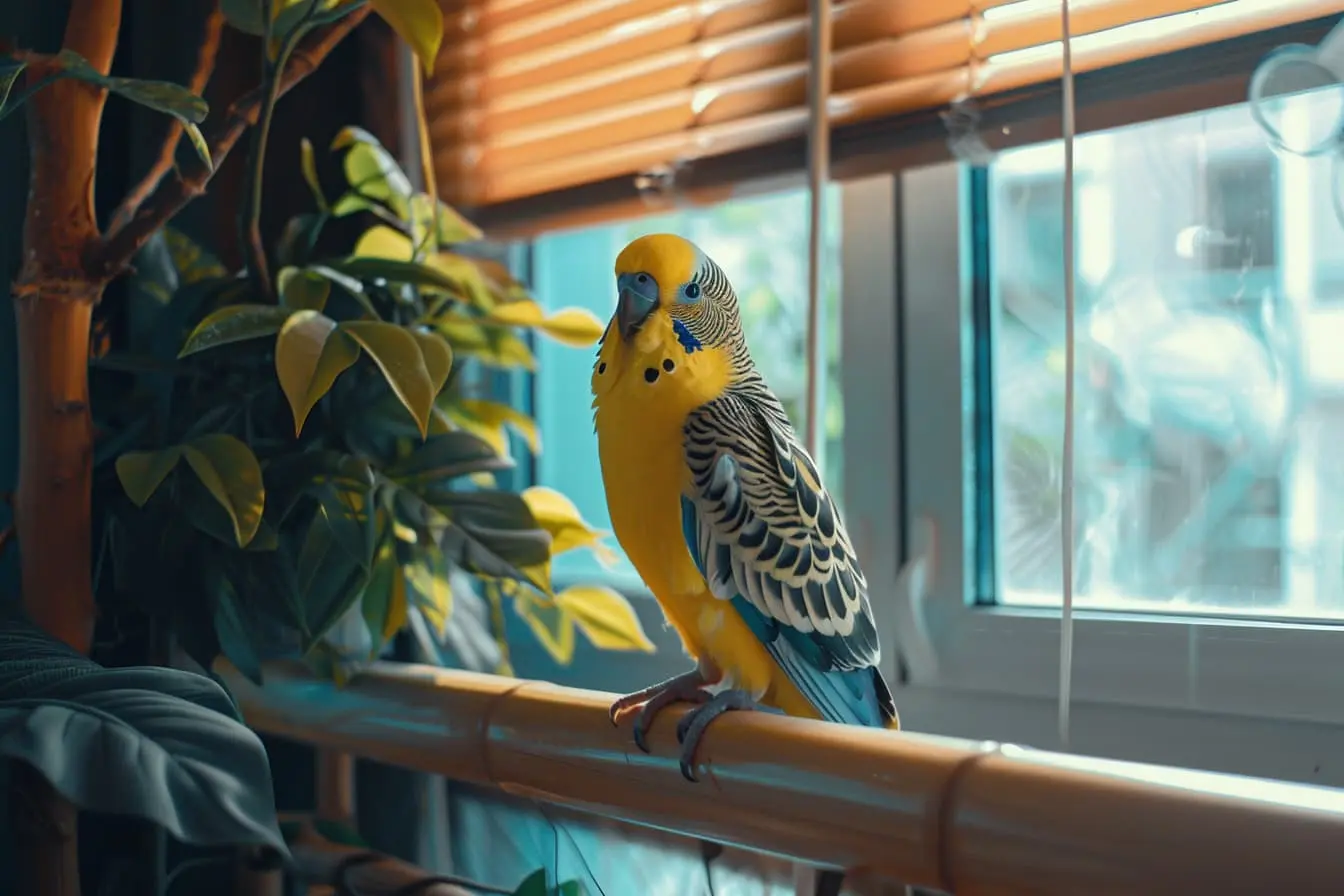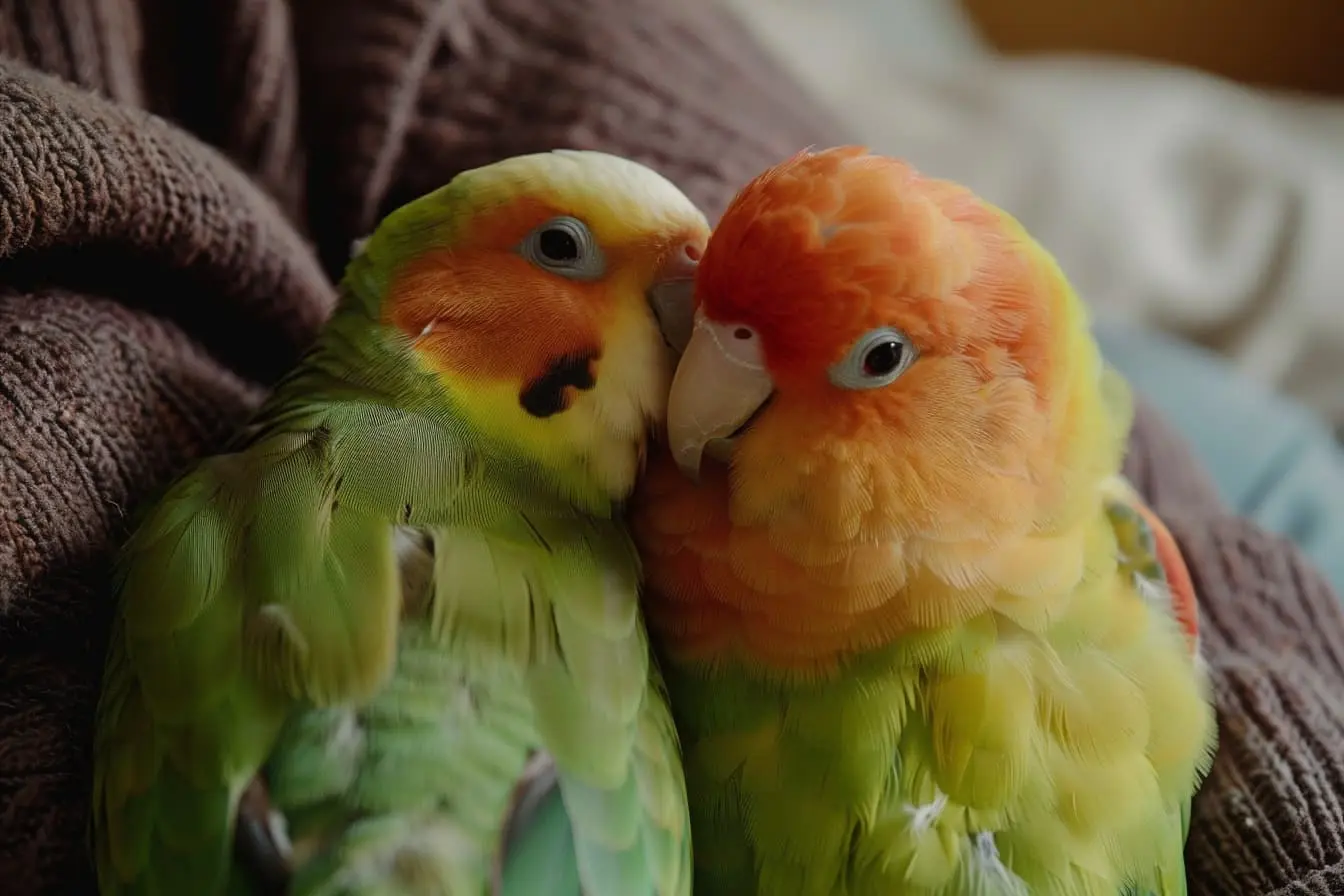
The Beginner’s Guide to Owning Lovebirds
Lovebirds are small, colourful parrots known for their affectionate nature and the strong bonds they form with their mates, making them popular pets among bird lovers. If you're considering adding a lovebird to your household in the UK, there are several important aspects to consider to ensure you provide a healthy and joyful environment for your new pet.
Choosing Your Lovebird
Types of Lovebirds
There are several species of lovebirds, but the three most commonly kept as pets are:
- Peach-faced Lovebirds: Known for their playful nature and striking coloration.
- Fischer's Lovebirds: Recognisable by their bright green back and golden yellow neck.
- Masked Lovebirds: Distinguished by their vivid blue feathers and "masked" face.
Where to Buy
- Reputable Breeders: Purchasing from a reputable breeder can ensure that the birds have been well cared for and are healthy.
- Pet Stores: Select a pet store that maintains high standards of cleanliness and bird health.
- Bird Rescues and Adoptions: Adopting a lovebird can be a rewarding way to give a bird in need a new home.
What to Look For
- Health: Choose a bird that is active, alert, and shows no signs of respiratory distress. The feathers should be bright and clean, eyes clear, and nostrils unblocked.
- Age: Young birds are easier to tame, but older birds can also make excellent companions if they have been well socialised.
Preparing Your Home
Cage Requirements
- Size: A cage for a pair should be at least 24 x 24 x 24 inches, as lovebirds are very active and need space to play and exercise.
- Placement: Position the cage in a lively area of your home to ensure social interaction, but away from direct sunlight and drafts.
Essentials
- Perches: Provide a variety of perches of different sizes and textures to exercise their feet.
- Toys: Lovebirds are intelligent and curious; provide a range of toys to chew on and interact with to keep them engaged and happy.
- Food and Water Dishes: These should be sturdy and easy to clean.
Nutrition
Daily Diet
- Pellets: Formulated pellets should make up about 60-70% of their diet as they provide balanced nutrition.
- Seeds: A small amount of seeds can be provided, but they should not be the mainstay of the diet due to high fat.
- Fruits and Vegetables: Offer fresh veggies and a little fruit daily; make sure to clean up any uneaten perishables to avoid spoilage.
Foods to Avoid
- Lovebirds should not eat avocado, chocolate, or caffeine as these can be toxic to birds.
Health and Maintenance
Regular Vet Visits
- Establish care with an avian vet for regular check-ups and emergencies.
- Signs of Illness: Be vigilant about changes in behaviour or appearance, such as lethargy, ruffled feathers, or changes in eating or droppings.
Daily Care
- Cleaning: Regularly clean the cage, perches, and toys to maintain a hygienic environment.
- Bathing: Provide a shallow dish of water or mist your birds several times a week to help maintain their feather condition.
Social Interaction and Training
Companionship
- Lovebirds are highly social and often thrive best in pairs to prevent loneliness.
- If kept alone, they require significant daily interaction with their human family members to remain sociable and tame.
Training
- Lovebirds can learn simple tricks and may mimic sounds if trained consistently using positive reinforcement.
Legal Considerations
Wildlife and Countryside Act 1981
- Ensure any lovebird species are legally kept under UK law. Check for any specific restrictions or requirements.
Conclusion
Owning a lovebird can be incredibly rewarding, bringing vibrant color and lively companionship into your home. By understanding and meeting your lovebird’s needs for companionship, dietary balance, and environmental enrichment, you can ensure a fulfilling and joyful life for your feathered friend.
Vets near you
Speciality vets
- Aquatics vet specialists
- Birds vet specialists
- Camelids vet specialists
- Cats vet specialists
- Cattle vet specialists
- Deer vet specialists
- Dogs vet specialists
- Equines vet specialists
- Exotic vet specialists
- Goats vet specialists
- Pigs vet specialists
- Poultry vet specialists
- Sheep vet specialists
- Small Mammals vet specialists
- Wild vet specialists
Vet facilities
- Accessible by public transport
- Blood testing
- Car park nearby
- Client car park
- Dentistry
- Diagnostic imaging
- Disabled public access
- Flea and worm treatments
- Microchipping
- Mobile services
- Neutering
- Open at weekends
- Out-of-hours service
- Referral interests
- Referrals only
- Street parking outside
- Toilets available
- Vaccinations
